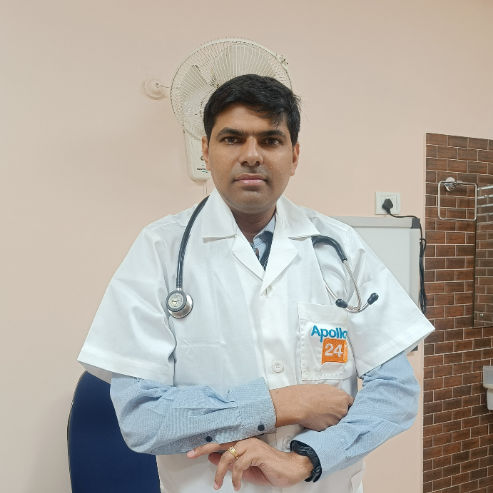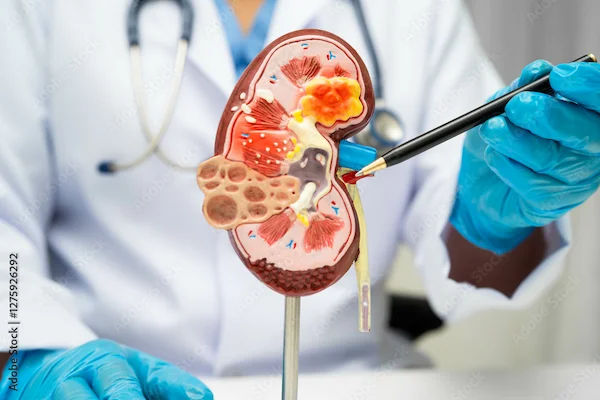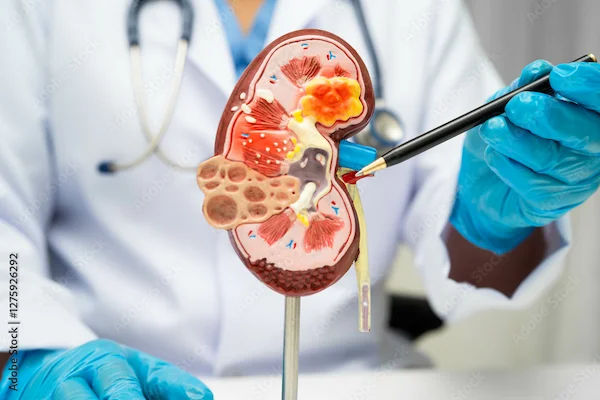Post Kidney Transplant Nursing Care Plan
Explore the essential elements of a post kidney transplant nursing care plan. Learn how nurses support recovery, prevent complications, and promote long-term kidney health through personalised care and monitoring.

Written by
Last updated on 17th Jul, 2025
_9.webp)
Introduction
Undergoing a kidney transplant is a life-changing event that brings hope and a new beginning. However, the journey doesn’t end with the surgery. Proper post-transplant care is crucial for long-term success. A well-structured nursing care plan ensures that patients recover smoothly, avoid complications, and maintain a healthy kidney. This guide is designed to help patients and caregivers understand what to expect after a kidney transplant, the key aspects of nursing care, and how to support recovery at home.
Why Is Post-Transplant Care Important?
After a kidney transplant, your body needs time to adjust to the new organ. The immune system may see the transplanted kidney as a foreign object and try to reject it. To prevent this, patients take immunosuppressant medications, which weaken the immune system. While these medicines protect the kidney, they also increase the risk of infections and other complications.
A structured nursing care plan helps:
Monitor kidney function
Prevent infections and rejection
Manage medications properly
Promote healing and overall well-being
Key Components of a Post-Kidney Transplant Nursing Care Plan
Key components of a post-kidney transplant nursing care plan are:
1. Monitoring Vital Signs and Kidney Function: After surgery, nurses will closely check:
Blood pressure (high BP can damage the new kidney)
Temperature (fever may indicate infection)
Fluid intake and output (to ensure the kidney is working well)
Blood tests (to check kidney function and medication levels)
What You Can Do at Home:
Keep a daily log of weight, blood pressure, and fluid intake.
Report any sudden weight gain, swelling, or fever to your doctor.
Consult Top Nephrologists
2. Infection Prevention: Since immunosuppressants lower immunity, infections are a major risk.
Nursing Care Includes:
Frequent hand hygiene
Avoiding crowded places initially
Monitoring for signs of infection (fever, cough, wound redness)
Tips for Patients:
Wash hands regularly.
Avoid raw or undercooked food.
Stay up-to-date with vaccinations (as advised by your doctor).
3. Medication Management: Immunosuppressants must be taken exactly as prescribed to prevent rejection. Missing doses can be dangerous.
Nursing Support:
Educating patients on medication schedules.
Explaining side effects (e.g., tremors, high blood sugar).
Patient’s Role:
Set reminders for medications.
Never skip or adjust doses without consulting your doctor.
4. Wound Care: The surgical site must stay clean and dry to prevent infection.
Nursing Actions:
Regular dressing changes.
Checking for signs of infection (redness, swelling, discharge).
Self-Care Tips:
Avoid heavy lifting or straining the incision.
Follow your doctor’s instructions on bathing and wound care.
5. Diet and Nutrition: A balanced diet supports healing and kidney function.
Dietary Guidelines:
Low-sodium (to control blood pressure).
Moderate protein (to reduce kidney workload).
Avoid grapefruit (interferes with immunosuppressants).
Hydration Tips:
Drink enough water (as advised by your doctor).
Limit caffeine and sugary drinks.
6. Physical Activity and Rest
Early recovery: Light walking helps circulation.
Later stages: Gradual increase in activity (avoid heavy exercise initially).
Listen to Your Body:
Rest when tired.
Avoid strenuous activities until cleared by your doctor.
7. Emotional and Psychological Support: A transplant can be emotionally overwhelming. Anxiety, mood swings, or depression are common.
How Nurses Help:
Providing counselling.
Connecting patients with support groups.
Self-Care Tips:
Talk to loved ones about your feelings.
Join a transplant support group.
Warning Signs to Report Immediately
Contact your healthcare team if you notice:
High fever or chills
Sudden weight gain (more than 2 kg in a day)
Decreased urine output
Severe pain near the transplant site
Unusual fatigue or weakness
Long-Term Follow-Up Care
Regular check-ups are essential even after recovery. Your doctor will monitor:
Kidney function tests
Medication adjustments
Blood pressure and sugar levels
Conclusion
Recovering from a kidney transplant requires patience, discipline, and a strong support system. By following your nursing care plan, taking medications on time, eating right, and staying vigilant for any warning signs, you can enjoy a healthy life with your new kidney.
Consult Top Nephrologist
Consult Top Nephrologists

Dr. Hareesha Babu K
Nephrologist
25 Years • MBBS, MD (General Medicine), DM (Nephrology),FASN, FRCP(Glasg), FRCP (Edin)
Bangalore
Kidney & Hypertension Care, Bangalore
(125+ Patients)

D. Akshay Zalavadiya
Nephrologist
3 Years • MBBS, MD, DM Nephrology
Ahmedabad
Beacon kidney consult, Ahmedabad

Dr. Siddharth Herur
Nephrologist
4 Years • MBBS, MD General Medicine, DM Nephrology
Kurnool
Medicover hospital and Gurudatta poly clinic, Kurnool

Dr. Anantha Rao
Nephrologist
7 Years • MBBS, DNB (General Medicine), DNB (Nephrology)
Kurnool
Aakash hospital and KIMS hospital, Kurnool

Dr. Tanmay Mukherjee
Nephrologist
13 Years • MBBS , MD (General medicine) , DNB (Nephrology)
Kolkata
Foresight Clinic and Diagnostic, Kolkata
Consult Top Nephrologist

Dr. Hareesha Babu K
Nephrologist
25 Years • MBBS, MD (General Medicine), DM (Nephrology),FASN, FRCP(Glasg), FRCP (Edin)
Bangalore
Kidney & Hypertension Care, Bangalore
(125+ Patients)

D. Akshay Zalavadiya
Nephrologist
3 Years • MBBS, MD, DM Nephrology
Ahmedabad
Beacon kidney consult, Ahmedabad

Dr. Siddharth Herur
Nephrologist
4 Years • MBBS, MD General Medicine, DM Nephrology
Kurnool
Medicover hospital and Gurudatta poly clinic, Kurnool

Dr. Anantha Rao
Nephrologist
7 Years • MBBS, DNB (General Medicine), DNB (Nephrology)
Kurnool
Aakash hospital and KIMS hospital, Kurnool

Dr. Tanmay Mukherjee
Nephrologist
13 Years • MBBS , MD (General medicine) , DNB (Nephrology)
Kolkata
Foresight Clinic and Diagnostic, Kolkata


_0.webp)
_11.webp)
.webp)